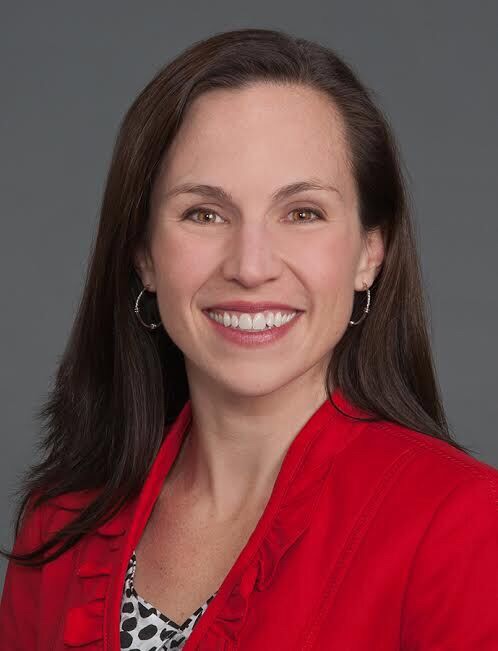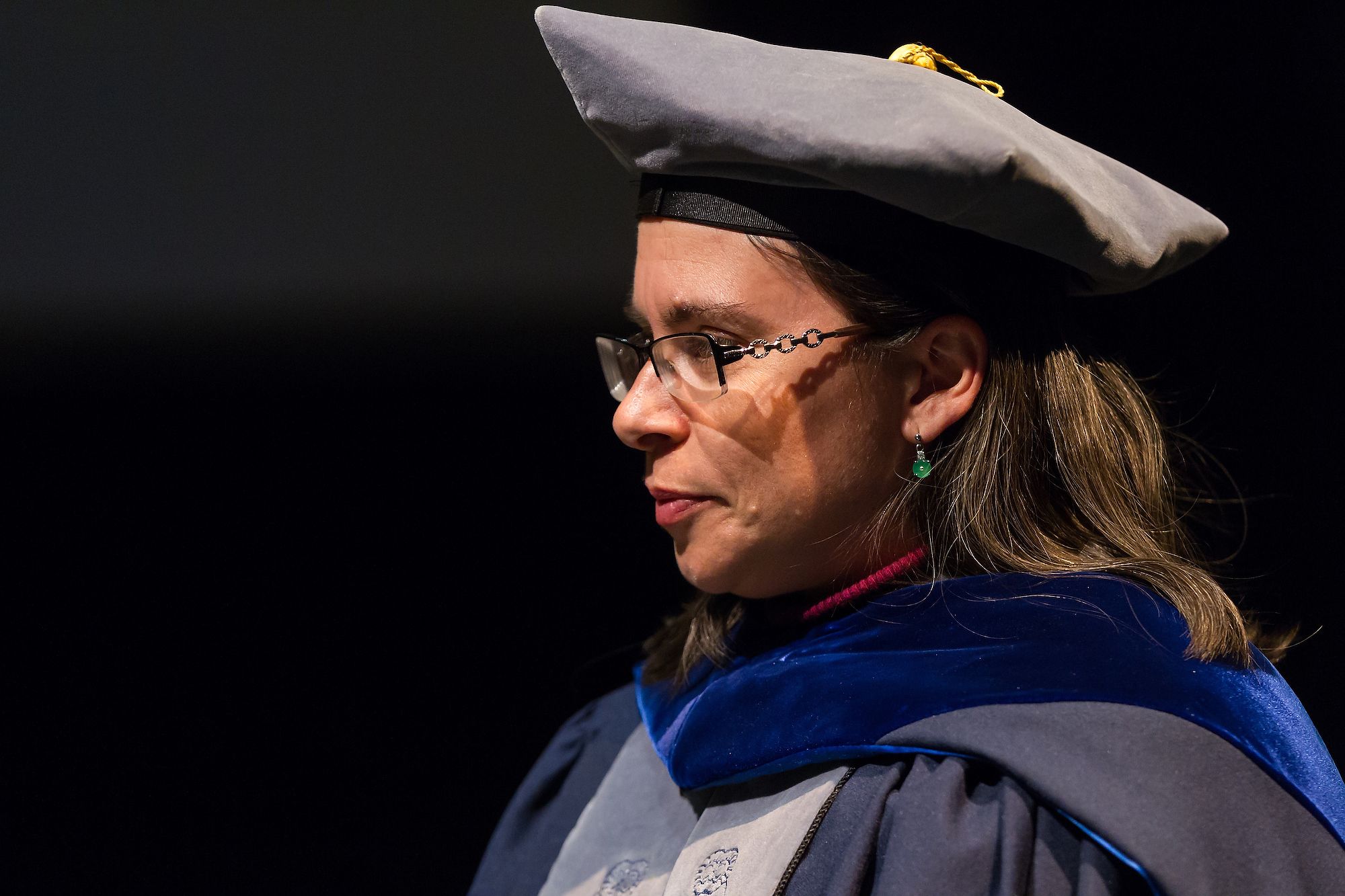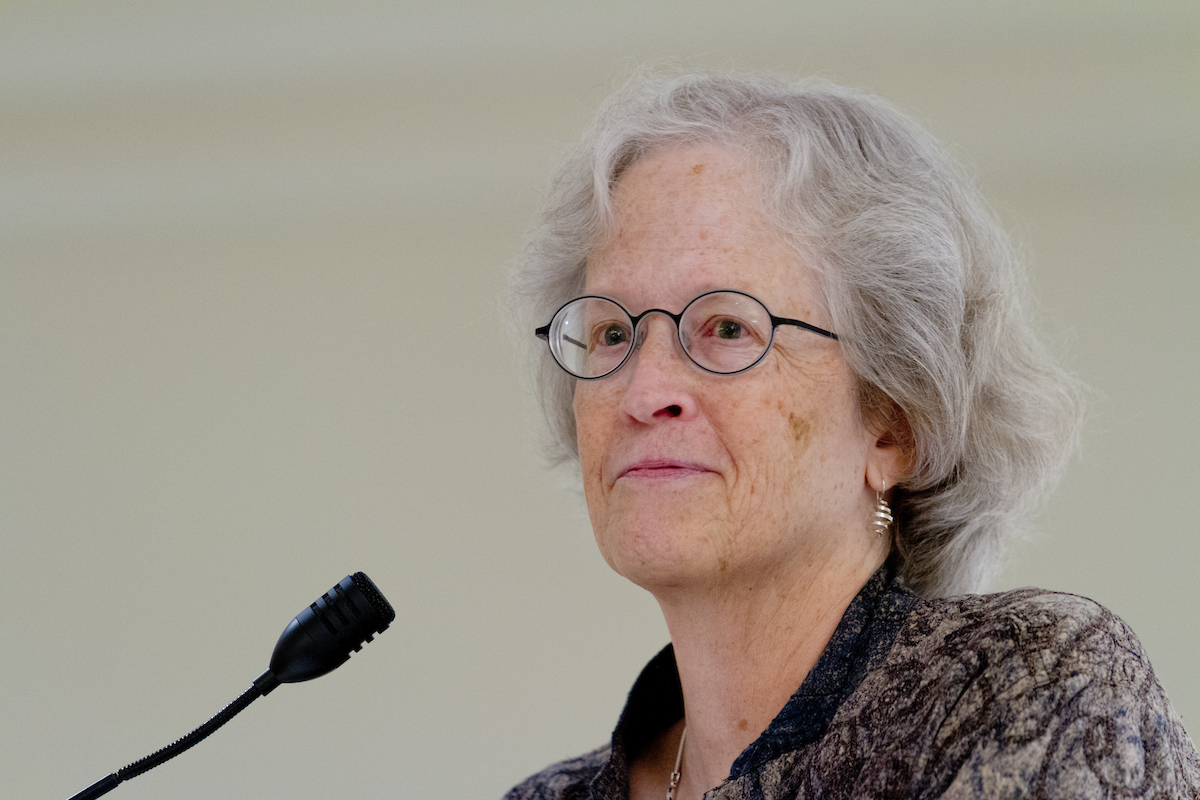If you faced the birth of a baby so sick that he might live only minutes or months, what kind of life would you want for him? How would you balance your overwhelming instinct to keep him alive against the pain he endures to keep breathing?
The questions are real for Dr. Christine Bishop (MA ’15) and the families of some of her tiny patients at Brenner Children’s Hospital in Wake Forest Baptist Medical Center. She says her Wake Forest Master of Arts degree in bioethics has been invaluable in her clinical work. Bishop has learned that parents sometimes need more than medical assessments. They may need help in making agonizing judgments. Yet Bishop says medical schools traditionally did not spend more than a few hours teaching doctors how to grapple with bioethics questions and how to usher patients through those high-stakes choices.

Neonatologist Dr. Christine Bishop (MA '15) says her master's degree has been invaluable in her clinical work.
That’s changing. Bishop says the School of Medicine’s recently revised curriculum strongly emphasizes bioethics, a field that encompasses vast terrain, from medical care to research protocols to public health policy to the boundaries of gene editing. The University has embraced bioethics, offering the Master of Arts, joint graduate degrees for law, medical or divinity students, a graduate certificate program, a minor in bioethics and individual classes or seminars through the Center for Bioethics, Health & Society.
Bishop, a neonatologist caring for premature and sick newborns, and her husband, Dr. Jonathan Bishop, a pulmonary critical care physician and associate professor, were recruited to Wake Forest in 2014. She accepted a part-time clinical position that allowed her to study bioethics full-time. After she graduated, she became a full-time assistant professor of pediatrics in the School of Medicine.
“I thought that I would find a lot of answers by studying bioethics, but it really just teaches you better ways to ask the questions and better ways to try to seek frameworks in which to discuss the questions,” Bishop said. “But most of the time there are no definite answers; it’s something we need to discuss and figure out.”

Her learning galvanized her interest in the human side of medicine. With a grant, she and a nurse practitioner set up a neonatal/perinatal palliative care service at the medical center. The service provides birth plans for critically ill or premature babies. “It’s sort of like advance directives for babies,” she said.
Even if a child lives only briefly, a plan can make it possible to baptize the baby, take photos or make sure family members get to hold her. The family can discuss which medical procedures to allow, and the medical team can determine how to diminish the baby’s suffering.
Bishop also teaches bioethics, co-directing the Medicine and Patients in Society course for first- and second-year medical students.
“It’s really, really important that they learn about things like income inequality and health equity, informed consent, truth-telling and medical ethics, all the way to chronic illness and disabilities, and spirituality,” Bishop said. “All these things are hugely important to the human side of medicine but often get neglected in the pre-clinical years, then they hit the clinical years and they’re like, ‘holy cow, what’s all this other stuff I have to deal with?’ It’s not just patho-physiology; it’s this person who’s in front of me, and I don’t know how to deal with this person or understand the system within which we’re all working and the history of this system.”

Anna Iltis, professor of philosophy and co-director of the bioethics center.
Bishop’s roles include serving as the faculty chair of the consultation subcommittee of the clinical ethics committee, which offers a free service to help staff, patients and families with an ethics question or conflict. Requests have doubled in recent years to 85 to 100 annually, Bishop said. Some can be handled quickly, while others require hours with all stakeholders. The committee of doctors, nurses, lawyers, social workers, academics and community members doesn’t tell people what to do; instead, it offers a framework for seeking a solution.
Bishop is one of many graduates having an impact. “Wake Forest has a tremendous presence in this field, doing things that really make a difference,” said Ana Iltis, a philosophy professor who serves with Nancy M.P. King as co-director of the bioethics center.
The issues are endless and constantly develop new kinks, Iltis said. For example, new studies hint that live kidney donors might face long-term health risks. “What risks are acceptable and appropriate and who makes that decision and how?” Iltis said.

Nancy M.P. King, professor of social sciences and health policy and co-director of the bioethics center.
Mark Hall, a law professor and co-director for bioethics graduate programs, said when Wake Forest began assessing the potential for bioethics a decade ago, “we were the only med school in the top 40 that had no dedicated bioethics faculty.” Thanks to an infusion of resources from the University and medical school, “we went from having basically nothing to one of the best in the country,” said Hall, who puts Wake Forest in the top five to eight bioethics programs.
King, co-director of the bioethics center and a professor of social sciences and health policy, said bioethicists function as utility infielders, moving wherever they are needed.
“Everybody is a moral agent, and everybody makes ethical decisions all the time,” King said. “People in bioethics are always in the position of figuring out how they can be most helpful without making it look like they have all the answers.”


